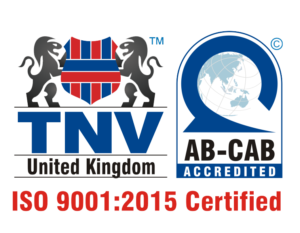The Role and Responsibilities of Sales Executives
Even though the approach differs in these two types of sales, the roles and responsibilities are similar. A sales executive helps to build a business by recognizing new business prospects and selling products to them. They maintain relationships with the current clients and develop and maintain new client relationships.They are required to stay ahead of their competition. They regularly work on improving their skills through seminars, attending classes, or workshops.
Tailoring Each Section of Your Sales Executive Job Description
They are often the point of contact for customer inquiries and negotiations, providing excellent customer service and after-sales support. Ultimately, you’ll help us meet and surpass business expectations and contribute to our company’s rapid and sustainable growth. Your confidence is greatly boosted by teamwork and in-person interactions with current and potential prospects. You get better at establishing relationships with strangers, you get better at communicating, and you get more self-reliant.
Dental Hygienist vs Nurse Salary: A Look at Pay and Beyond
Sales Executives juggle multiple tasks, from prospecting new clients to following up on leads and managing existing accounts. Effective time management and organizational skills are essential to prioritize these tasks and maximize productivity. Sales Executives must articulate their ideas clearly and persuasively, whether in person, over the phone, or through written correspondence. This includes not only speaking but also active listening, which is crucial for understanding client needs and building rapport. For instance, a sales executive might receive an inquiry from a client about a product feature. By promptly providing accurate information and addressing any concerns, the sales executive can enhance the customer experience and build trust.
- Strong interpersonal skills also foster trust and long-term relationships, which are vital for repeat business and referrals.
- Continuous training is essential in the ever-evolving sales landscape, where new tools and methodologies frequently emerge.
- Sales Executives play a key role in a company’s success by identifying and securing business opportunities, cultivating relationships with clients, and managing various aspects of the sales cycle.
- Discover the qualifications and exciting challenges that await you in this dynamic and results-driven profession.
- The effectiveness of a Sales Executive can significantly influence a company’s revenue and market presence.
- Understanding these challenges is essential for sales professionals to navigate their roles effectively.
Sales Executive Job Description Updated for 2025
This article delves into the key responsibilities and essential skills that define a successful Sales Executive. From prospecting new clients to nurturing existing accounts, the multifaceted nature of this role requires a unique blend of interpersonal skills, strategic thinking, and industry knowledge. Building lasting relationships with clients and driving sales growth are also key aspects of this role.
This not only attracts high-performing candidates but also sets the foundation for accountability and growth. Your Company Name is an innovative and customer-focused organization, specializing in industry/sector. We pride ourselves on delivering market-leading solutions that empower our clients to achieve success. Our team is driven by passion, creativity, and a commitment to excellence, making Your Company Name a standout employer in our field.
advantages of finding a sales executive job through randstad
Technology is rapidly transforming the sales landscape, presenting both opportunities and full-stack developer challenges for sales executives. For example, a sales executive in the software industry might attend tech conferences to connect with potential clients and gather insights on emerging trends. By understanding the specific needs of different industries, they can tailor their approach to resonate with potential customers, thereby increasing the likelihood of successful sales. One of the primary responsibilities of a sales executive is to identify and target potential sales opportunities.
The job description should also outline the expected qualifications and required experience for someone in this role, as well as any additional skills that may be beneficial to the company. A mentor offers guidance, shares experiences, and provides feedback to help mentees overcome challenges and achieve goals. Experienced professionals can benefit from reverse mentoring, learning from younger colleagues about new technologies and trends. Establishing a mentor-mentee relationship provides immediate support and long-term growth opportunities.
Task Management
Therefore, sales reps are so much more than revenue generators—they’re sales strategists. While many small to medium-sized businesses often use sales reps to take care of every step of the B2B lead generation process, this limits their ability to grow in their sales career. By having them wear too many hats, you limit your company’s ability to generate more (and higher quality) leads. Sales executives (also known as Government Sales Executive (AI project) job sales reps) are responsible for closing deals with sales qualified leads (SQLs), generating more revenue for your business. They are tasked with providing a targeted sales pitch and presentation to potential buyers, aiming to convert them into customers. As a growing business owner, you probably want to consistently generate leads and get more sales through the door.
The following sections delve into the essential skills that define a successful Sales Executive, providing insights into their importance and practical applications in the field. Collaboration is essential for sales executives, as they often work closely with marketing and product teams to align their efforts. By sharing insights from the sales front lines, sales executives can help marketing teams create more effective campaigns and product teams develop offerings that meet customer needs. For instance, a sales executive might schedule quarterly business reviews with key clients to discuss their evolving needs and how the company can continue to support them. By fostering these relationships, sales executives can enhance customer loyalty, leading to repeat business and referrals. Marketing strategy refers to the methods used to promote products and services to target audiences.

